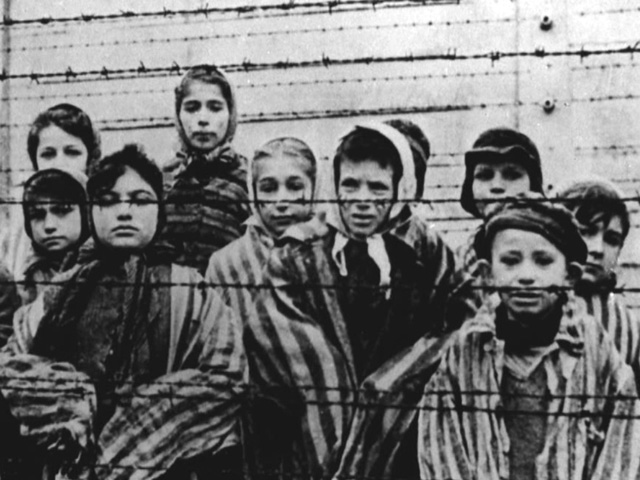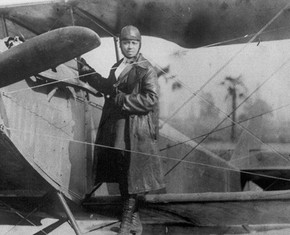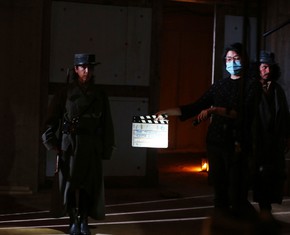The views expressed in our content reflect individual perspectives and do not represent the authoritative views of the Baha'i Faith.
The Nazi system was unique in the sheer bestiality of the act most commonly associated with its name, the program of genocide systematically carried out against populations considered either valueless or harmful to humanity’s future, a program that included a deliberate attempt literally to exterminate the entire Jewish people. – The Universal House of Justice, Century of Light, p. 61.
Today the world will commemorate the liberation, 70 years ago this month, of the infamous Auschwitz-Birkenau Nazi death camp.
Probably the greatest surviving symbol of the human susceptibility to absolute depravity, Auschwitz-Birkenau stands now as a monument to the more than one million people murdered by the Nazis there—Jews, Gypsies, homosexuals, Soviet prisoners of war, Baha’is. If you’ve never visited Auschwitz, you can learn more and get a sense of what it looks like here. Once you’ve seen it, you won’t forget it—and today, the United Nations asks the whole world to remember.
In a ceremony held at the United Nations in New York last week, U.N. Deputy Secretary-General Jan Eliasson called for global reflection on how better to prevent the horrific crimes against humanity witnessed during the Holocaust–and other, more recent genocides, as well. In his remarks to the gathering, Eliasson made a critical point—that the world, despite the cry of “Never Again!” after the mass murder of six million people—has often failed to stop such genocides from continuing.
“It is important that we examine why we continue to fail to prevent mass atrocities, despite lessons learned, despite knowledge of causes and drivers and despite our assurances of ‘never again,’” he said. “Genocide can only happen when we ignore the warning signs – and are unwilling to take action.”
Mr. Eliasson said the event, attended by the representatives of many nations and human rights groups, offered a chance to consider what must be done differently to protect people and build societies ‘where tolerance trumps hatred.’ He stressed that excuses for turning a blind eye to genocide and mass murder were disappearing, with pervasive instant global communication and deepening international connections. He also said we now know that genocide results from creeping processes unfolding over time, and of the conditions that allow them to thrive.
The U.N. meeting preceded its annual International Day of Commemoration in Memory of the Victims of the Holocaust, held each year on January 27th, which recognizes the anniversary of the liberation of the Auschwitz death camp–and reminds the world that it could happen again. The meeting also urged U.N. Member States to develop educational programs that will instill the memory of the tragedy in future generations, in order to prevent genocide from occurring again.
In his remarks to observe the commemoration today, U.N. Secretary-General Ban Ki-Moon said:
The United Nations was founded to prevent any such horror from happening again. Yet, tragedies from Cambodia to Rwanda to Srebrenica show that the poison of genocide still flows. We must be ever vigilant against bigotry, extremist ideologies, communal tensions and discrimination against minorities. And we must teach our children well.
Standing near the crematorium at Auschwitz, I felt deeply saddened by all that had happened within. But, I was also inspired by all those who liberated the death camps for all humanity. Let us join forces today on a shared journey to a world of equality and dignity for all.
The Baha’is jailed in countries like Iran and Yemen are now living the reality of the Secretary-General’s and the Deputy Secretary-General’s warnings about the specter of future genocide and the need for continuing vigilance against bigotry, discrimination and extremist ideologies. Imprisoned only for their Faith, oppressed by extremist ideologues and suffering as the innocent victims of widespread discrimination, the imprisoned Baha’is and their fellow believers all fear their persecution could easily widen into genocidal actions.
As you give some thought today to the potential of more genocide in the world and what you can do about it, please consider this quote from the Baha’i writings:
How long will humanity persist in its waywardness? How long will injustice continue? How long is chaos and confusion to reign amongst men? How long will discord agitate the face of society?… The winds of despair are, alas, blowing from every direction, and the strife that divideth and afflicteth the human race is daily increasing. The signs of impending convulsions and chaos can now be discerned, inasmuch as the prevailing order appeareth to be lamentably defective. I beseech God, exalted be His glory, that He may graciously awaken the peoples of the earth, may grant that the end of their conduct may be profitable unto them, and aid them to accomplish that which beseemeth their station. – Baha’u’llah, Gleanings from the Writings of Baha’u’llah, p. 216.

















Comments
Sign in or create an account
Continue with Googleor